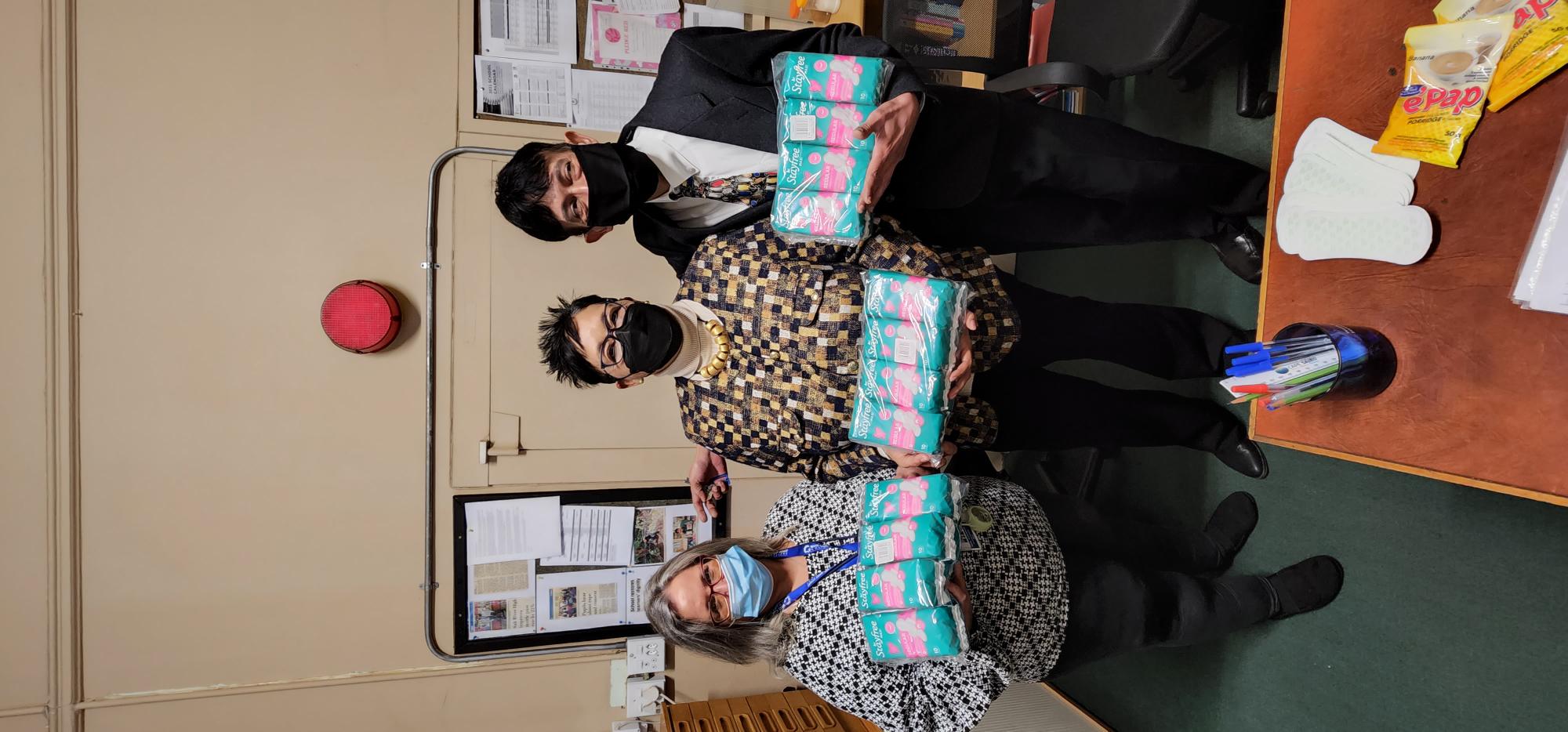
News
Minister Fernandez conducts oversight visit of Sanitary Dignity Project
In observance of World Menstrual Hygiene Day taking place on Saturday, 28 May 2022, the Western Cape Minister for Social Development, Sharna Fernandez, conducted an oversight visit to Salt River High School, which is one of the 223 schools participating in the Sanitary Dignity Project (SDP) in the Western Cape. (Please see attached photos from Minister Fernandez’s visit)
World Menstrual Hygiene Day aims to bring together the voices and actions of non-profit organisations, government agencies, individuals and the media to promote good menstrual health and hygiene for everyone around the world by calling on all members of society to join hands and break the silence, raise awareness and change the negative social norms around menstrual health and hygiene.
During a talk with Salt River High School female learners benefiting from the SDP, Minister Fernandez said “ As a government, I cannot reiterate the importance of providing support to female learners who at times find themselves unable to attend school, as a consequence of their inability to manage their periods. We believe that initiatives such as the sanitary dignity project are not only crucial to restoring the dignity of many female learners but also serves to address undue hardships and other educational barriers female learners face.”
Minister Fernandez added: “We are cognisant that more work is needed to fully understand the taboo associated with menstruation, break the silence effectively, and advance work toward the realisation of women’s rights and an understanding of gender equality that enables young women to make the most of the educational opportunities presented to them.”
In order to advance the constitutional commitment to equality and address the sanitary-dignity of indigent female learners, the National Department of Women has embarked on the process of developing an integrated policy on the provision of sanitary products to indigent persons, and to ensure that such persons are allowed to manage menstruation in a knowledgeable, safe and dignified manner. Up until now, only a national framework has been development and implemented. In the absence of national policy, South Africa’s provinces determine how to implement a sanitary dignity programme.
In 2019, the Provincial Cabinet and Provincial Treasury identified the Department of Social Development (DSD) as the lead department for the implementation of the Sanitary Dignity Implementation Framework. The Minister and Head of Department for the DSD were designated to take responsibility for the programme and to establish the Provincial Sanitary Dignity Committee to oversee the implementation of the programme.
The Western Cape DSD in collaboration with the Western Cape Department of Education (WCED) has since the inception of the SDP has reached 97 677 female learners at 223 schools in the province.
Following an analysis of 2016-2018 data regarding school attendance and retention rates of female learners from Grades 4 to12, schools in Q1-5 were identified to participate in the programme These schools include no-fee paying schools and fee-charging schools. It was decided that the project should prioritize schools in rural areas and include special needs schools-where the need is greatest. Moreover, the Sanitary Dignity Programme will be enhanced by the inclusion of this aspect in the Life Orientation programmes offered by the Department of Education at schools.
“ As a Department, we remain committed to advancing the constitutional commitment of equality and promoting the Menstrual Hygiene of indigent female learners,” concluded Minister Fernandez.
Joshua Covenant Chigome
Spokesperson for the Minister of Social Development, Minister Sharna Fernandez
Tel: 021 483 9217
Cell: 083 661 4949


